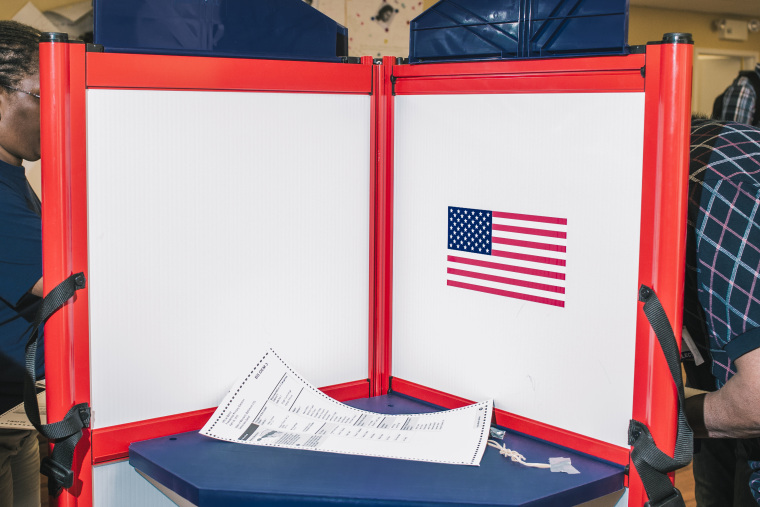As recently as early 2015, a grant total of zero states had automatic voter registration. As of this morning, however, AVR is now the law of the land in one-fifth of the states. The NBC affiliate in Chicago reports that Illinois Governor Bruce Rauner (R) signed his state's measure this morning.
According to the bill, automatic voter registration will be run through the Secretary of State's office, with implementation scheduled to be completed in time for the 2018 elections.The bill will allow voters to be automatically registered to vote through an electronic process when they're applying for a driver's license or a state ID, unless they opt out.According to the group Common Cause Illinois, which was one of the biggest proponents of the new legislation, there are up to two million eligible voters who have not registered in the state of Illinois.
The path to success in Illinois wasn't easy -- Rauner vetoed a previous version of the bill last year -- but the Democratic-led legislature unanimously approved changes sought by the governor, clearing the way for today's bill signing in Chicago.
And while voting-rights advocates have reason to cheer the progress on this front, there may soon be additional good news: AVR will be on the statewide ballot in Nevada next year, and it appears likely to pass.
Circling back to our previous coverage, this is a policy that’s tough to argue against. When it comes to registering to vote in the United States, the burden has traditionally been on the individual: if you’re eligible to vote, it’s up to you to take the proactive steps needed to register.
Automatic voter registration, which already exists in many of the world’s democracies, flips that model. The idea is exactly what it sounds like: under the policy, states automatically register eligible voters, shifting the burden away from the individual. Those who want to withdraw from the system can do so voluntarily without penalty, but otherwise, Americans would simply be added to the voters rolls as a matter of course.
At the federal level, Rep. David Cicilline (D-R.I.) has taken the lead on sponsoring a national AVR bill, and his proposal has 108 co-sponsors. At this point, however, literally all 108 are Democrats, and in a House led by a far-right Republican majority, the bill has no realistic chance of getting a vote, at least in this Congress.
That said, the scale of the Democratic support suggests the next time control of Capitol Hill changes hands, we may see some real movement on this.
